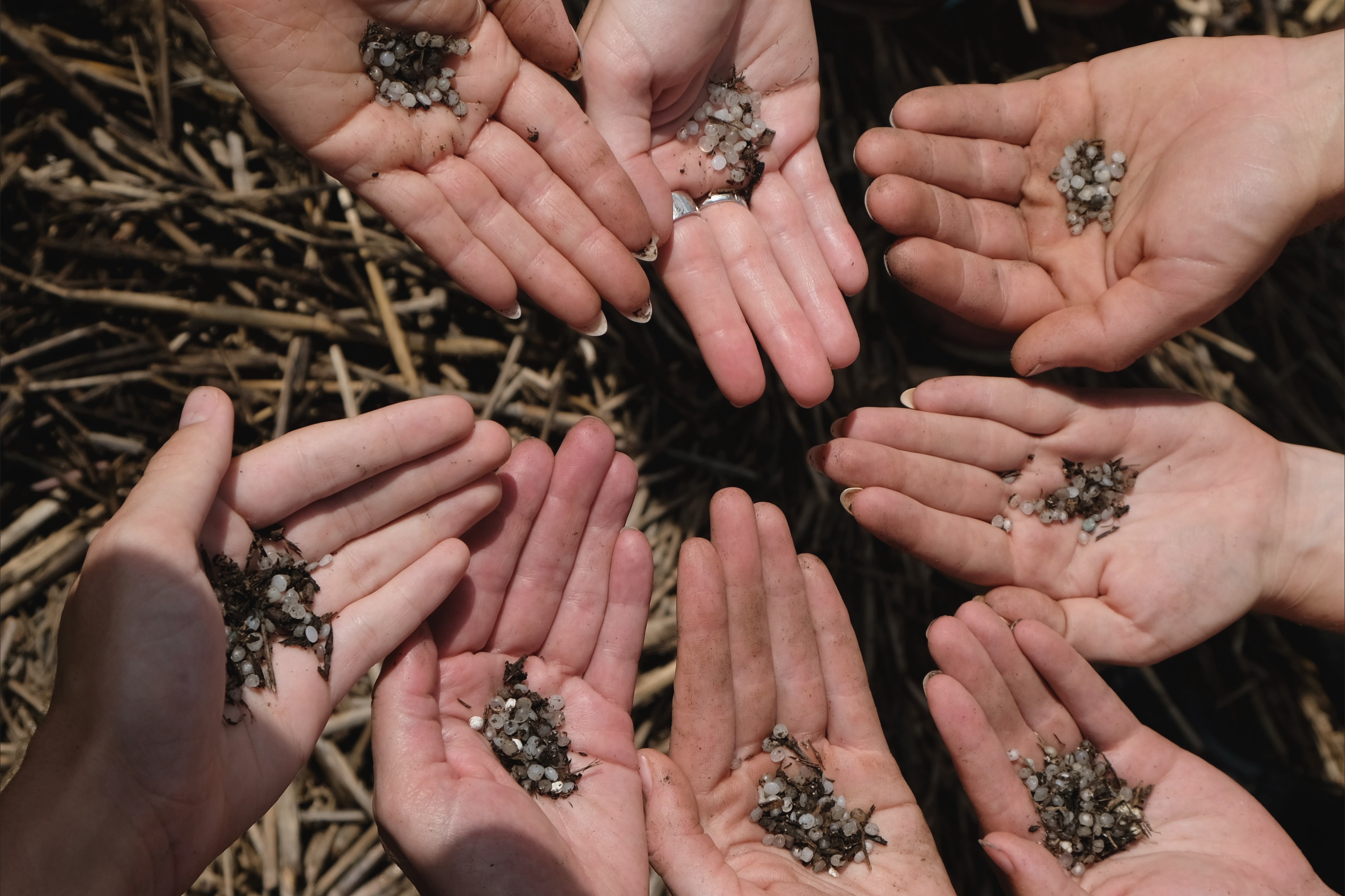
What are Plastic Pellets?
Plastic pellets, also known as nurdles, are created from natural gas or oil, are typically less than 5 millimeters in size, and are the raw material that is melted and molded to make familiar plastic products, like water bottles, grocery bags, and polystyrene foam takeout containers.
These lightweight and durable microplastics pollute terrestrial, freshwater, and marine environments and threaten wildlife and public health. Plastic pellets may be mistakenly consumed by wildlife due to their resemblance to eggs, which can lead to blockages of internal organs, starvation, and death. Plastic pellets also absorb and transfer pathogens and harmful chemicals like DDT, PCBs, and mercury.
Plastic pellets are frequently leaked, spilled, or dumped into the environment, especially our waterways, during manufacturing, storage, and transport. Once released into the environment, they are very difficult to remove and can be transported far distances via ocean currents. An estimated 10 trillion plastic pellets now enter our oceans each year.




What is the International Plastic Pellet Count (IPPC)?
On May 3, 2025, the 1st annual International Plastic Pellet Count brought together individuals and organizations across 6 continents and 26 countries, including the United States, to search for plastic pellet pollution in local communities. The data that was recorded will contribute to a better understanding of where this pollution is occuring as well as the scale and density of the problem. The data will also be used to advocate for legislation that will require the regulation of plastic pellet spillage.
Katie Abare, the Policy Coordinator for the Charleston Chapter in South Carolina, helped to spark and plan IPPC and hosted an IPPC event in the marsh in historic downtown Charleston, along with Charleston Waterkeeper and the Coastal Conservation League. Resins, which include plastic pellets, are Charleston’s largest export commodity, leading to a pervasive plastic pellet problem in the community. Volunteers quickly collected hundreds of pellets, especially along the wall where the marsh wrack line accumulates.
Over 3,000 plastic pellets were collected during the Charleston, SC event!
How Can We End Plastic Pellet Pollution?
Companies should not be allowed to pollute our communities and waterways with plastic pellets. We are raising awareness about the global plastic pellet problem to urge the accountability of companies. Currently, within the United States, there is no law addressing this issue.
Passing legislation similar to the federal 2024 Plastic Pellet Free Waters Act would prohibit certain discharges of plastic pellets and other pre-production plastic into waterways. We are working towards re-introducing this bill in 2025.
Contribute to a plastic-free future by collecting data on plastic pellet pollution in your community. Join or host a plastic pellet count and plan to join next year’s 2nd annual IPPC!
Images: Katie Abare, Charleston Surfrider
